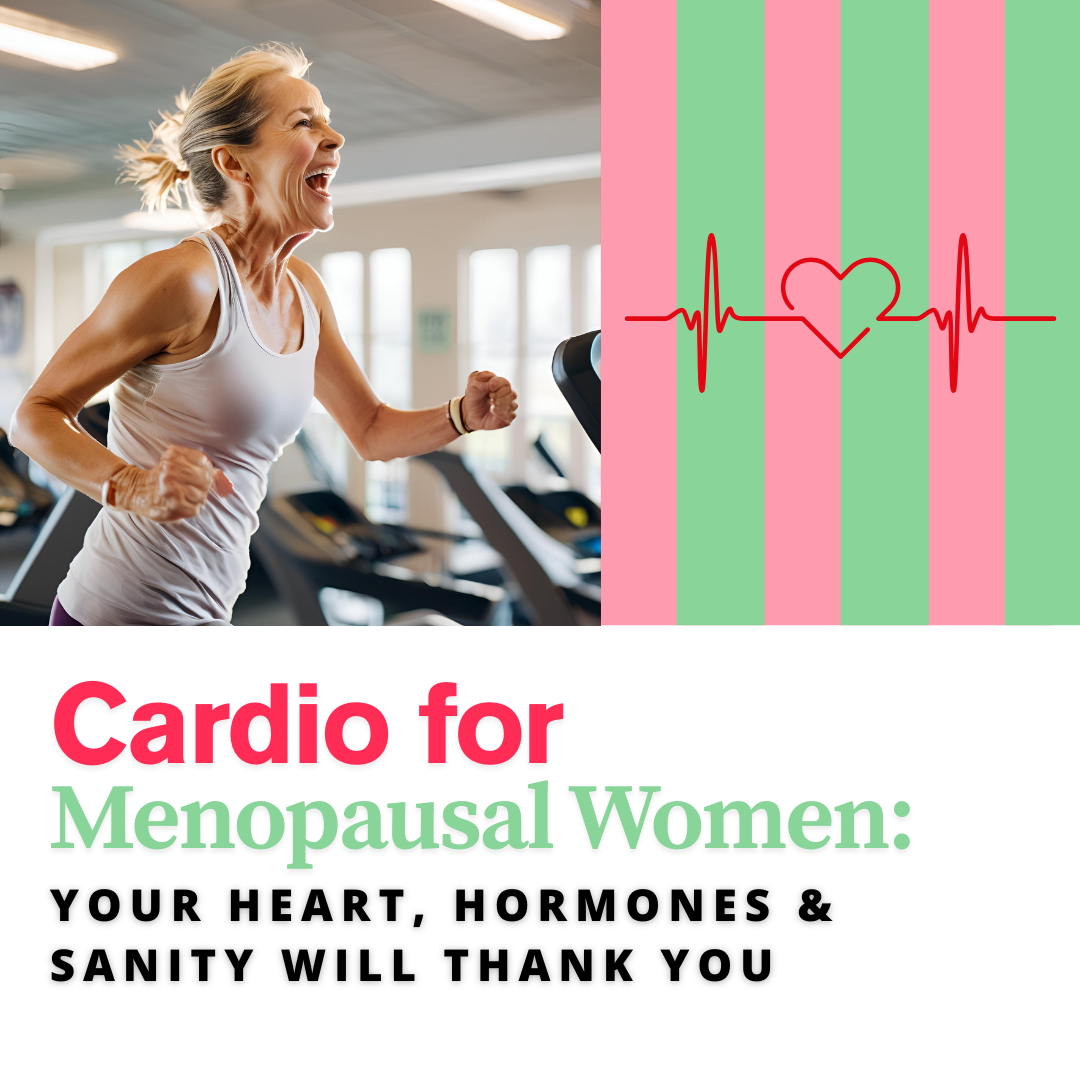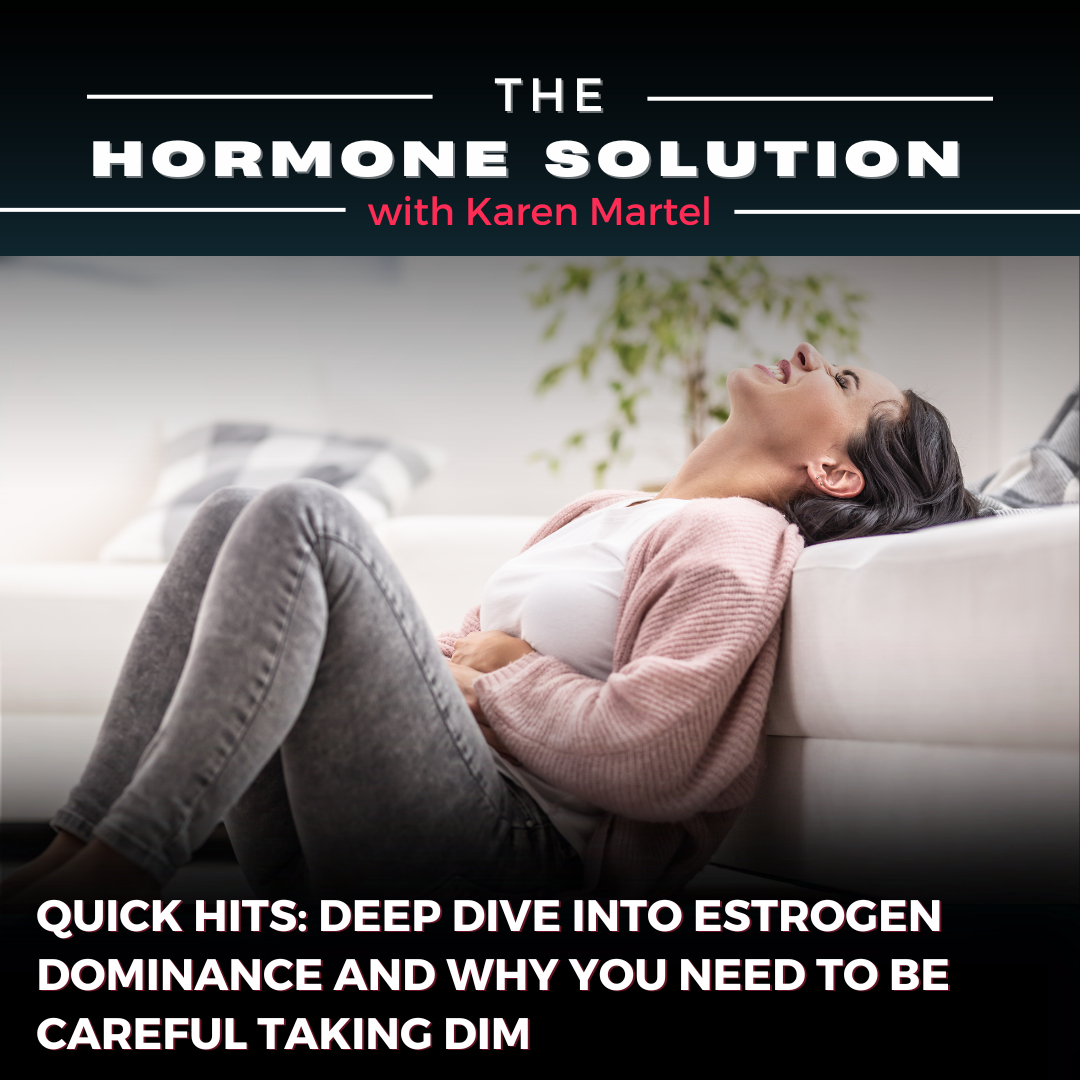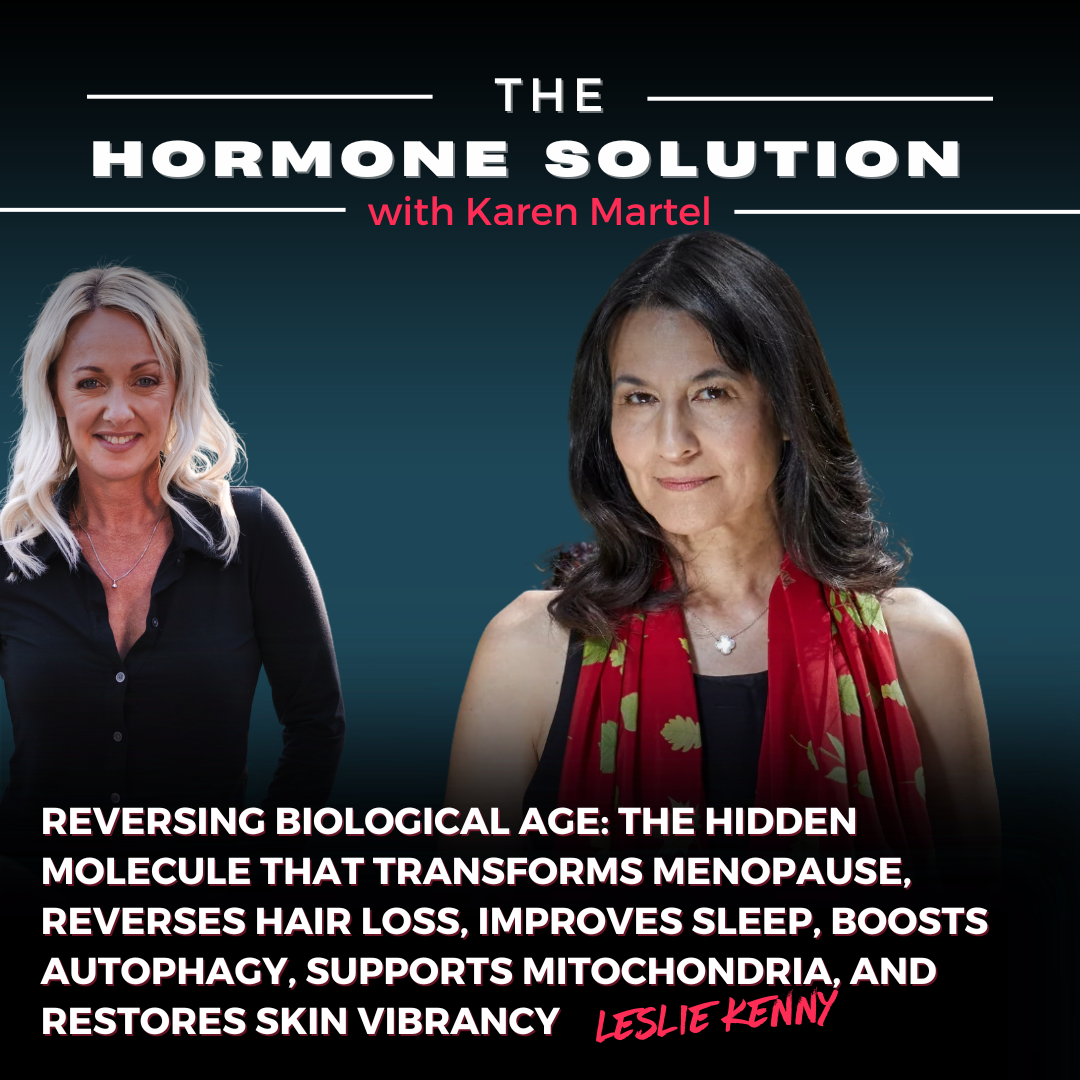
Cardio for Menopausal Women: Your Heart, Hormones & Sanity Will Thank You
Let’s be real—menopause isn’t for the faint of heart. Between the hot flashes, mood swings, stubborn belly fat, and sleep struggles, it can feel like your body is staging a full-blown rebellion. But here’s the good news: movement is one of your secret weapons. And when I say movement, I mean cardio—your bestie when it comes to feeling stronger, leaner, and a little more like yourself again.
Why Cardio Needs to Be on Your Midlife Must-Do List
During perimenopause and menopause, your estrogen starts to dip (or nosedive), and that has a ripple effect on pretty much everything—especially your heart, bones, and waistline. That’s where the right type of cardio steps in like the superhero it is.
In midlife, our bodies become more sensitive to stress—and that includes the stress from long, intense cardio sessions. Elevated cortisol levels, already common due to hormonal shifts, can spike even higher with excessive running or high-impact cardio, leading to fat storage, muscle loss, and burnout. That’s why women in this phase need to rethink cardio. The focus shifts from “more is better” to smarter is better—incorporating things like REHIT, low-impact movement, and walking that support metabolism without taxing the adrenals.
The benefits? Oh, just a few little things like:
-
Better heart health—Estrogen protects your arteries, and when it drops, your risk for heart disease goes up. Cardio keeps that blood flowing and helps reduce arterial stiffness.
-
Weight management—It helps burn off the muffin top and rev your midlife metabolism.
-
Mood boost—Cardio gets those endorphins going, which is basically nature’s Prozac.
-
Better sleep—Because when you move your body, you’re more likely to actually sleep through the night (hallelujah).
The Best Cardio for Women in Menopause
You don’t need to run marathons or do burpees until you cry. Quite the opposite, we want to be strategic when it comes to cardio. Here are cardio options that work with your hormones—not against them.
1. Walking
Underrated and overdelivering. Walking (especially brisk walking) is easy on the joints and super effective. Start with 10 minutes a day and build up. Bonus points if you can get outside and soak up some vitamin D.
2. Swimming
If you're dealing with hot flashes, swimming is a dream. It’s a full-body workout without the impact, and it’s surprisingly calming for the nervous system too.
3. Dancing
Turn up the music and shake it out—Zumba, dance cardio, or even living room dance parties count. It's fun, gets your heart rate up, and helps de-stress. Yes, please.
4. HIIT (High-Intensity Interval Training) & Even Better REHIT REHIT (Reduced Exertion High-Intensity Training)
Quick bursts of effort followed by rest. Think: 30 seconds of jumping jacks, 30 seconds off. Keep it short and sweet—just 1-2 sessions a week is plenty. More isn’t always better when hormones are in flux.
REHIT is a time-efficient workout that delivers big results with minimal effort. It involves just 2–3 short bursts of intense activity (think 10–20 seconds) within a 10-minute session, done a few times a week. My go to is the AI CAROL Bike. There's nothing like it on the market and is a total game changer for getting the most out of cardio in the least amount of time. Check out the podcast episode I did on REHIT here:
5. Cycling
Indoor or outdoor—both are great. It strengthens your legs, supports your cardiovascular system, and is easy on your knees. I use my CAROL Bike for this too!
Pro Tip: Combine Cardio with Strength Training
Research shows that mixing cardio with resistance training is the ultimate midlife power move. Not only does it support heart health, but it also builds muscle, which is crucial as estrogen declines and your risk of bone loss and insulin resistance goes up.
Some ideas:
-
Alternate walking days with strength workouts using resistance bands or dumbbells.
-
Add in squats, yoga, or planks to build stability and core strength.
-
Even 2 days a week of resistance training can make a huge difference.
It’s Not Just About the Body—It’s About the Brain Too
Let’s not forget the mental health magic of cardio. Moving your body helps manage anxiety, clears brain fog, and smooths out those emotional rollercoaster days. Think of it as hormone therapy… without the prescription.
Tips to Keep You on Track (and Feeling Good)
-
Start slow. If you’re new to fitness or coming back after a break, ease in with walking or swimming.
-
Consistency beats intensity. You don’t need to go hard—just show up regularly.
-
Hydrate like a queen. Add electrolytes to your water if you’re sweating it out.
-
Fuel up post-workout. A protein-rich snack helps your body recover and rebuild muscle.
-
Listen to your body. Some days you’ll feel like Wonder Woman, other days not so much. Adjust accordingly.
Bottom Line
Cardio isn’t just about burning calories—it’s about reclaiming your energy, protecting your heart, lifting your mood, and taking charge of your health. Whether you’re walking around the block or dancing in your kitchen, every bit counts. And when you pair it with strength training? Chef’s kiss.
This chapter of life doesn’t have to feel like a downhill slide—it can be a powerful, energized, vibrant season. And it starts with just moving your body.
Citations
-
Women’s Health UK: Best exercises for postmenopausal cardiovascular health.
-
Women’s Health Australia: Optimal cardio approaches for perimenopausal women.
-
PMC: Efficacy of exercise for alleviating menopausal symptoms.
-
Australian Menopause Centre: Benefits of exercise during menopause.
-
Bupa UK: Best exercises for menopause.
-
Life Extension: Exercise recommendations for menopause fitness goals.

Find Karen Martel on Apply Podcast
Karen Martel is a Certified Hormone Specialist and Transformational Nutrition Coach dedicated to empowering women through their health journeys.
As the host of the popular podcast The Hormone Solution, Karen tackles the complexities of hormonal health, weight loss resistance, and the challenges that come with perimenopause and menopause.
Her mission is to disrupt outdated narratives surrounding women's health, providing reliable information and practical solutions that help women reclaim their vitality. With personal experience overcoming her own health struggles, Karen offers insights into hormone optimization and sustainable weight management strategies.
Join her as she engages in enlightening conversations with experts and shares actionable advice, all aimed at helping women navigate their unique hormonal landscapes with confidence and clarity. Tune in to discover how to embrace life's stages while enhancing overall well-being.






